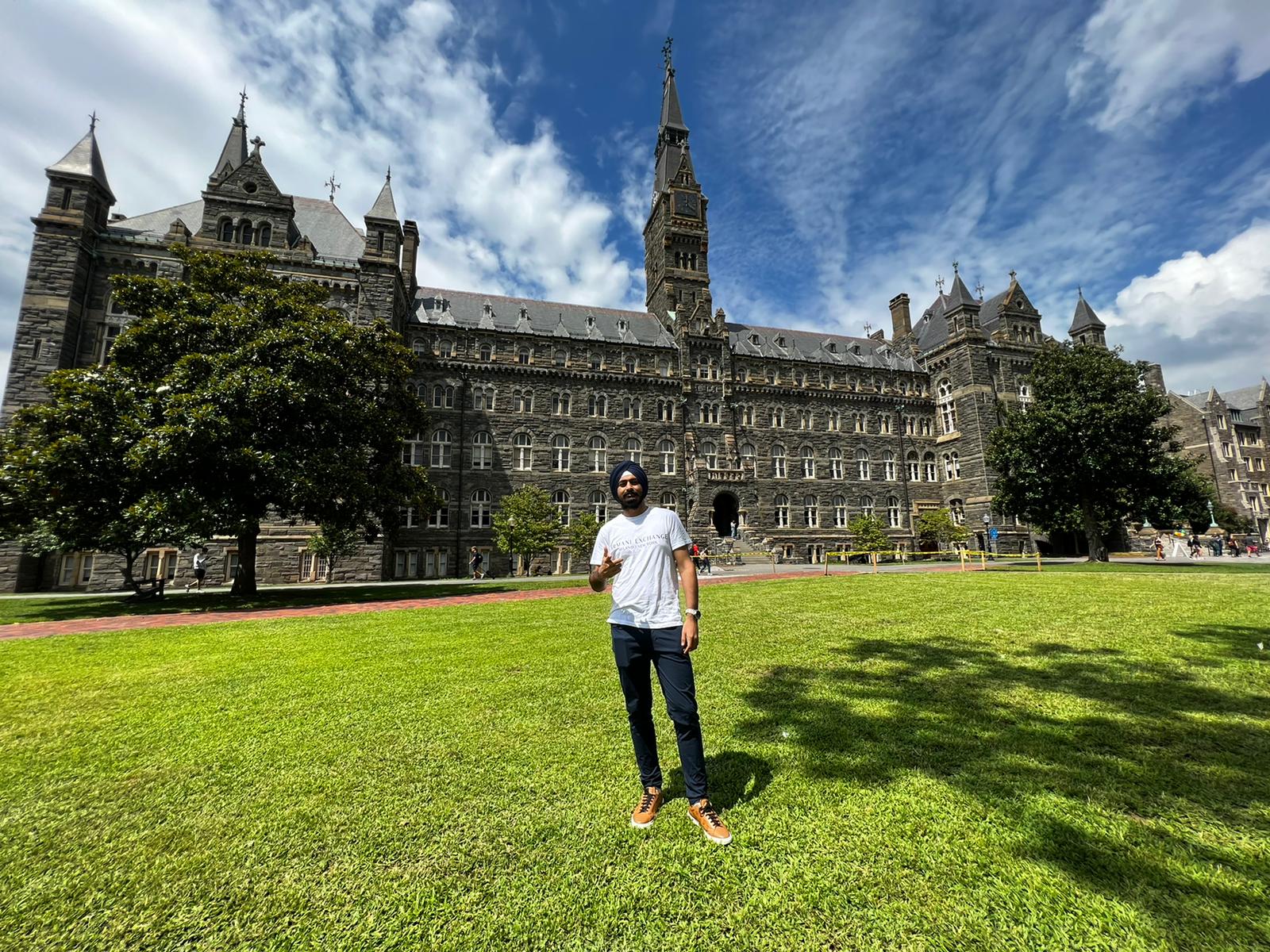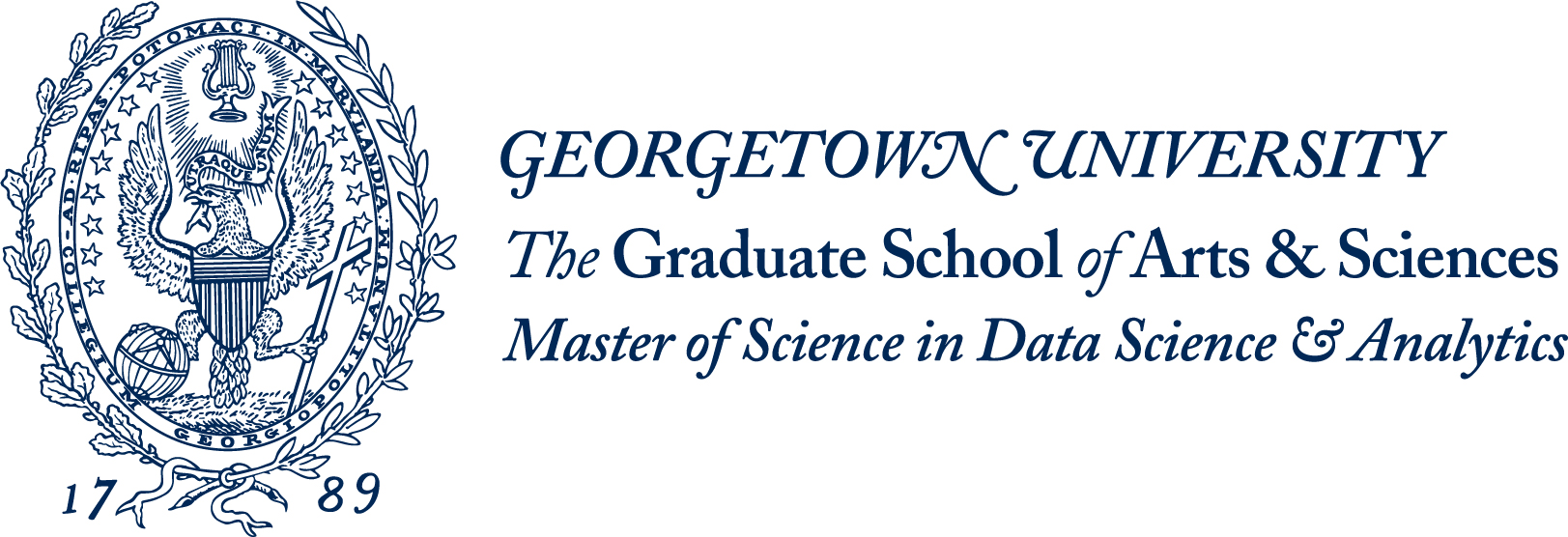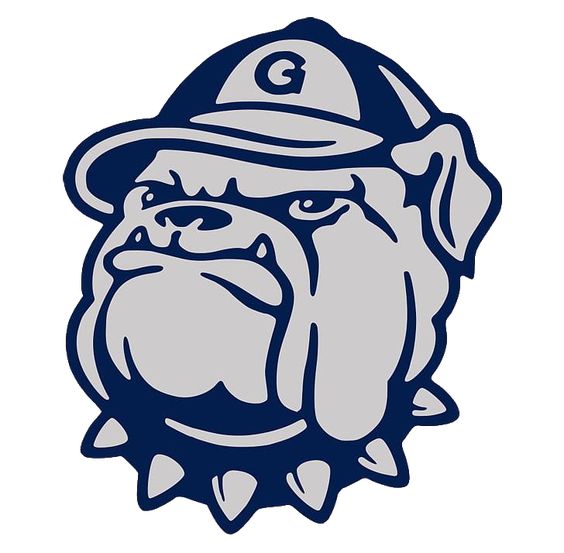
About Me
I am Tegveer Ghura and I graduated from Boston University in 2021 with a BA in Economics. Soon after, I worked for MetricStream Inc., a private SaaS company, in Northern California as a Commission Analyst. At Georgetown, I hope to broaden my worldview and, simultaneously, master multifarious Data Science tools to thrive in industry or academia for years to come. At this time, I aspire to work as a Machine Learning Engineer for a large consulting or tech firm. I highly value the power and responsibility that cloud computing wields in the professional world and, hence, I am looking forward to taking ANLY 502. In my free time I watch sports, explore restaurants, attend concerts, and practice/party with the GU Cricket Club. I also strive to update my data science repertoire through external organizations, such as DataBricks, AWS, Udemy, and Coursera! Lastly, I hope you imbibe some new knowledge from perusing my portfolio and I hope to hear from you soon!
GU Net ID: tg693

Leadership Qualities
- Former President and Captain of Boston University Cricket Club
- Graduate Teaching Assistant for Georgetown University's ANLY-590 Neural Nets and Deep Learning
Education
- 2022-2024: Georgetown University, M.S Data Science & Analytics
- 2017-2021: Boston University, B.A (Cum Laude) in Economics
Hobbies
- Avid Sports Fan: Cricket, Soccer, American Football
- Hiking, Exploring Multifarious Cuisines, and Attending Concerts
- Part-time DJ
The following is a piece of text that will help you get to know me better. As an undergraduate student, I earned straight A grades in the courses Multivariable Calculus, Linear Algebra (Geometric Algorithms), and Analysis of Variance. The first graduate-level Statistics course, MA4(6)15, I undertook exposed me to R programming and Git. My group and I, time zones away due to the pandemic, earned a gratifying 90.5% in the Final Project for which I adopted a nocturnal lifestyle to code our Shiny application. Additionally, I challenged myself by substituting introductory courses for graduate-level courses, MA681 and MA581, to fulfill the statistics minor
MA681, a hands-on course in R, strengthened my intuition for selecting statistical methods in future projects. Enthralled by the newly learnt autoregressive model, I shunned the full regression model, which was more valuable according to professor Sussman, in the Final Project of MA681. Moreover, he commented that the autoregressive model, despite its statistically significant result, would not provide much insight because my data was not convincingly stationary. His feedback assisted me in carefully selecting the appropriate statistical methods for my news classification project in the Natural Language Processing course. Therefore, my improved awareness will come to the fore when I present my Final Projects at Georgetown University by not only rationalizing appropriate techniques for both exploratory and predictive analyses but also curating efficient datasets from the business requirements gathered.
In addition to striving for academic excellence, I am a fervent advocate of leading teams outside the classroom. During my last semester, which was pandemic-struck, I had the opportunity of serving as President of the Boston University Cricket Club. Although Club Sports had given all teams a choice of staying inactive, I was headstrong to organize weekly practice for thirty eager members. However, to my dismay, four members repeatedly flouted COVID-19 guidelines by failing to submit daily symptom surveys on time. The club was on the verge of being shut down indefinitely and I, compellingly, dismissed the non-compliant members for the semester, emphasized strict future expectations from the remaining members, pleaded with our benevolent supervisor to keep the club operational, and continued practice swimmingly until the end of the semester.
In terms of work experience, I made an impact as a full-time Commission Analyst at MetricStream, Inc., where I embraced popular traits of a Data Scientist. Being detail-oriented was pivotal because I had to adhere to strict payroll deadlines while tracking approximately 90 associates and their teams' performance on a monthly-basis. Problem solving coupled with critical reasoning kept me on my toes because I questioned and reviewed payout qualifications of each associate to maintain consistency and coherency for expense reconciliation. Furthermore, an open-minded outlook fostered efficient collaboration, as I anticipated and incorporated prospective changes imposed by the Sales Operations team to a contract.


